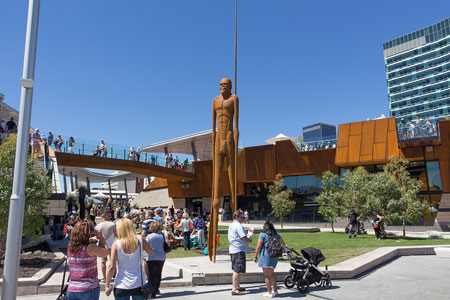Perth Translation Services » Italian translator » Italian Brochure Translation
Italian Brochure Translation
Perth Translation Services provides Italian brochure translations for businesses and government departments in Australia. As a professional translation services provider, we offer fast and quality Italian brochure translations, and are able to typeset Italian translations into existing design files.
We usually work with InDesign project folders shared by clients, and deliver multilingual brochures from a single brochure in English.
Working with local Italian translators, designers and typesetters, you can be assured your project gets delivered by professionals familiar with the local culture and terminology used in Australia, and any project feedback gets addressed quickly.
Italian Brochure Translators
Enquire with us today
Latest Testimonials


About the Italian Language
Italian is an official language in Italy, Switzerland, San Marino, Vatican City and western Istria (in Slovenia and Croatia). Italian is also spoken by large expatriate communities in the Americas and Australia. Italian is a major European language, being one of the official languages of the Organisation for Security and Cooperation in Europe and one of the working languages of the Council of Europe.
It is the third most widely spoken first language in the European Union with 69 million native speakers. Including Italian speakers in non-EU European countries (such as Switzerland and Albania) and on other continents, the total number of Italian speakers is around 90 million
Throughout Italy, regional variations of Standard Italian, called Regional Italian, are spoken. In Italy, almost all the other languages spoken as the vernacular — other than standard Italian and some languages spoken among immigrant communities — are often imprecisely called "Italian dialects", even though they are quite different, with some belonging to different linguistic branches. The only exceptions to this are twelve groups considered "historical language minorities", which are officially recognized as distinct minority languages by the law. On the other hand, Corsican (a language spoken on the French island of Corsica) is closely related to Tuscan, from which Standard Italian derives and evolved.
The differences in the evolution of Latin in the different regions of Italy can be attributed to the presence of three other types of languages: substrata, superstrata, and adstrata. The most prevalent were substrata (the language of the original inhabitants), as the Italian dialects were most likely simply Latin as spoken by native cultural groups. Superstrata and adstrata were both less important. Foreign conquerors of Italy that dominated different regions at different times left behind little to no influence on the dialects. Foreign cultures with which Italy engaged in peaceful relations with, such as trade, had no significant influence either.
Regional differences can be recognized by various factors: the openness of vowels, the length of the consonants, and influence of the local language (for example, in informal situations the contraction annà replaces andare in the area of Rome for the infinitive "to go"; and nare is what Venetians say for the infinitive "to go").

